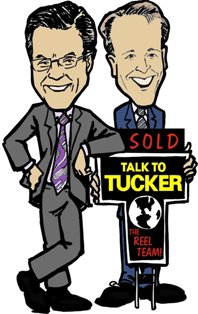 Your monthly principal and interest charges are determined by the rate and the amount of the loan. And the rate and loan amount, in turn, are affected by several factors. The rate depends on your credit score, discount points you pay, and whether the down payment is less than 20 percent. The loan amount depends on the size of the down payment and the home's price.
Your monthly principal and interest charges are determined by the rate and the amount of the loan. And the rate and loan amount, in turn, are affected by several factors. The rate depends on your credit score, discount points you pay, and whether the down payment is less than 20 percent. The loan amount depends on the size of the down payment and the home's price.
There is also the matter of mortgage insurance, which is levied on borrowers who make a down payment of less than 20 percent.
What determines your mortgage payment?
Mortgage lenders closely scrutinize your financial history to determine whether to approve your loan application.
Of primary concern are:
- Your credit report, which details your payment history on all loans, bankruptcy filings and other financial information.
- Your credit score, which uses your credit report to arrive at a numerical representation of your overall creditworthiness.
Credit scores (sometimes called FICO scores after Fair Isaac Corp., the firm that created the most commonly used form) range from the 300s to about 900, with most home buyers falling in 600s and 700s.
Factors used to determine your credit score
Past delinquency: Those who have failed to make payments in the past tend to do so in the future. The more recent a delinquency, the more it counts against you; a 30-day delinquency within the past 12 months hinders your chances of getting favorable mortgage terms.
Length of credit: The longer you've had credit, the better.
Credit use: If you're maxed out or close to your credit limits, you're viewed as risky.
Mix of credit: Someone with a combination of revolving and installment debt is considered less risky than one with only a secured credit card.
The higher your credit score, the less risky you appear to a lender. A good credit score will help you qualify for a mortgage loan and obtain better terms.
Cleaning up your credit report
Because an estimated four out of five credit reports contain some kind of misinformation -- errors you'll want to clear up before approaching any lender.
Obtain copies of your credit report from all of the big three credit reporting agencies -- Equifax, Experian and TransUnion. Each probably will differ from the others in small ways.
Tips for cleaning up your credit report
- Look closely for any errors and correct them.
- Note late payments and credit balances; you may have to explain them to a lender.
- Compare account numbers to make sure they're yours.
- Pay all bills on time.
- Learn more about credit scores and how they're calculated.




